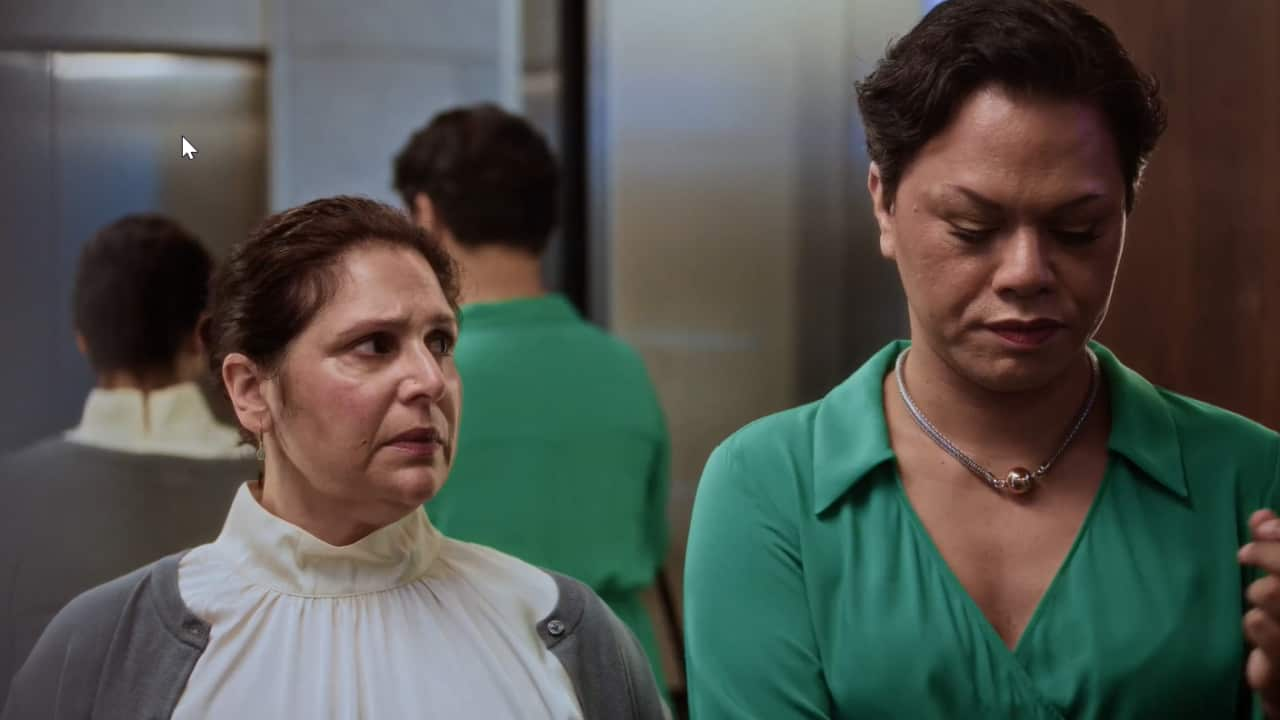Key Points
- The Victorian government has launched a campaign about the impact of microaggressions on gender diverse people.
- The Unsaid Says a Lot is the first government-led campaign of its kind to exist in Australia.
- Son Vivienne, CEO of Transgender Victoria, said microaggressions and subtle non-verbal cues can have a large negative impact on people.
This article contains references to suicide.
The Victorian government has launched a campaign focusing on the impact of microaggressions and non-verbal discrimination towards the trans and gender diverse community.
Microaggressions are indirect, subtle and seemingly ‘small’ incidents of discrimination.
The Unsaid Says a Lot is the first government-led campaign of its kind to exist in Australia and is part of the state’s broader LGBTIQ+ strategy.
Son Vivienne, CEO of Transgender Victoria — which helped to design the campaign with the state government — said microaggressions and subtle non-verbal cues can have a large negative impact on people.
“The glance sideways or the sense that you don’t fit in or you’re not welcome is something that all people recognise and understand.
“And sometimes that escalates to more tangible examples of exclusion, like bullying, but quite often it is just that sense of not being recognised in the community or feeling welcome in a public space,” Vivienne said.
Vivienne says the campaign is trying to broaden how we define exclusion and discrimination, as many people tend to define discrimination by explicit verbal or physical hostility.
“We have legal and employment systems and we have systems that recognise the black and white — but not the grey … The subtlety of whether you are feeling supported by the people around you and the impact of feeling excluded by the people around you is profound,” they said.
Trans and gender diverse communities continue to report high levels of stigma and discrimination. La Trobe University research from 2021 found that over three-quarters of trans and gender diverse participants reported that they had been treated unfairly because of their gender identity in the past twelve months.
Over 20 per cent of the respondents said that this happened either ‘a lot’ or ‘always’.
Professor Adam Bourne, a public health researcher and the director of the Australian Research Centre in Sex, Health and Society at La Trobe University said that discrimination continues to be a widespread issue for trans and gender diverse people.
“We see people discriminated against in workplaces, in health contexts, we see people experience violence and abuse, verbal abuse, physical harassment or abuse in public — and a range of other contexts,” he said.
Bourne notes that these experiences of discrimination have a strong association in research with psychological distress, suicidal ideation, and suicide attempts.
“Wherever we see those kinds of experiences, wherever we see people having had those kinds of experiences, we see worse mental health outcomes, time and time again,” he said.
Over 40 per cent of trans and gender diverse participants in the 2021 La Trobe University research reported that they had considered attempting suicide in the previous 12 months, a rate 20 times higher than the 2.3 per cent reported among the general Australian population.
Bourne says that, despite small improvements in the experiences of trans and gender diverse young people and some improved outcomes and experiences in healthcare contexts, there is little evidence to indicate that “experiences of stigma and discrimination of trans and gender diverse people are abating as a whole.”
The Victorian campaign contrasts these experiences of subtle discrimination with positive actions that viewers can take to express allyship with members of the trans or gender diverse community, such as sharing a seat on a tram or including somebody in a social sports team.
Vivienne said that showing these small acts to the public could be important for understanding their power.
“I think that if allies can understand that the smallest indication of being inclusive or supportive or interesting or welcoming can save lives, that’s a profound message to communicate,” they said.
Readers seeking crisis support can contact Lifeline on 13 11 14, the Suicide Call Back Service on 1300 659 467 and Kids Helpline on 1800 55 1800 (for young people aged up to 25). More information and support with mental health is available at and on 1300 22 4636.
supports people from culturally and linguistically diverse backgrounds.
LGBTIQ+ Australians seeking support with mental health can contact QLife on 1800 184 527 or visit . also has a list of support services.
